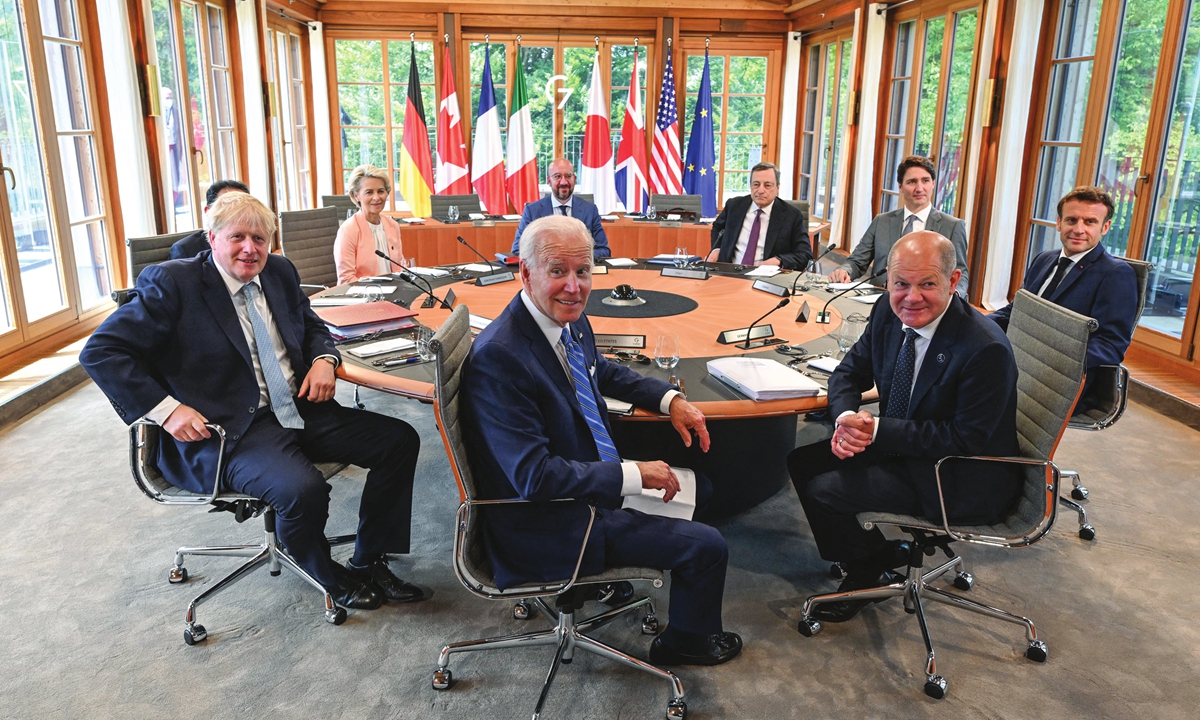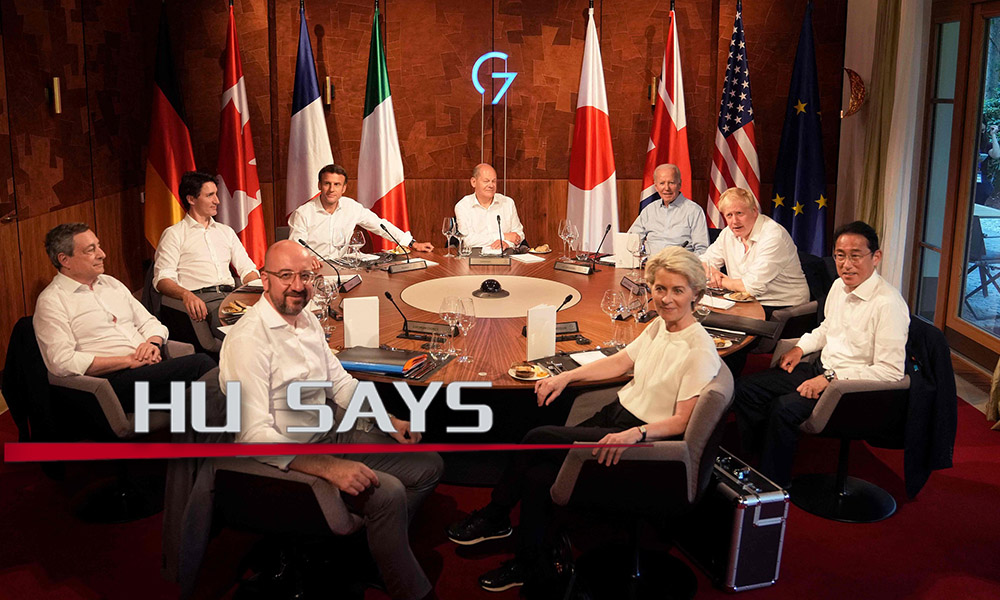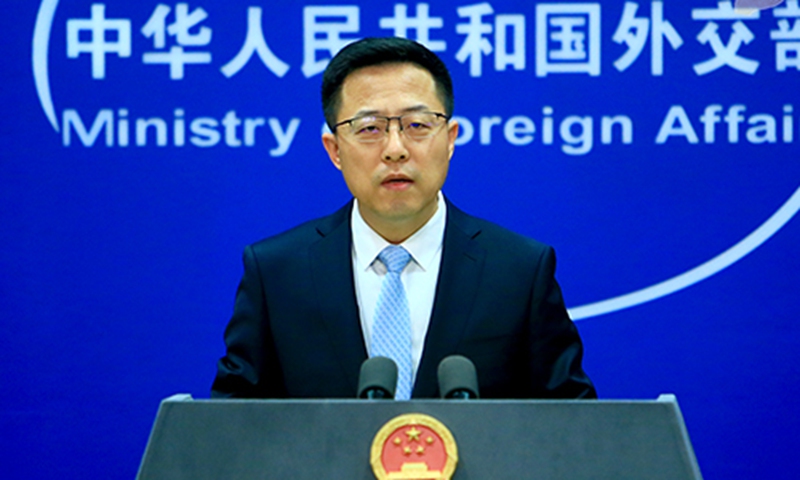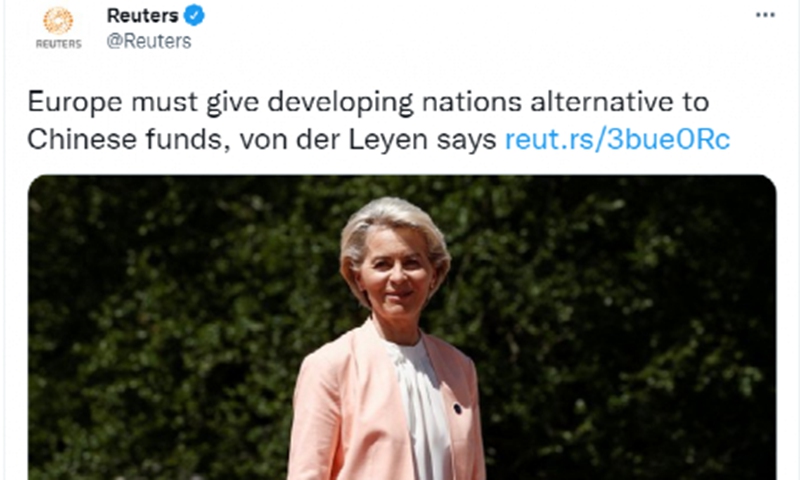G7 summit: Is western influence waning in a multipolar world?

Top shots: Leaders of the G7 at the gathering in southern Germany. Biden and other leaders relaunched the newly renamed “Partnership for Global Infrastructure and Investment” at the annual event. — AFP
G7 summit is more like a Western mobilization meeting for US diplomatic strategy
G7’s $600 billion PGII met with skepticism, mockery
US' program eyes geopolitics; 'objective impure'
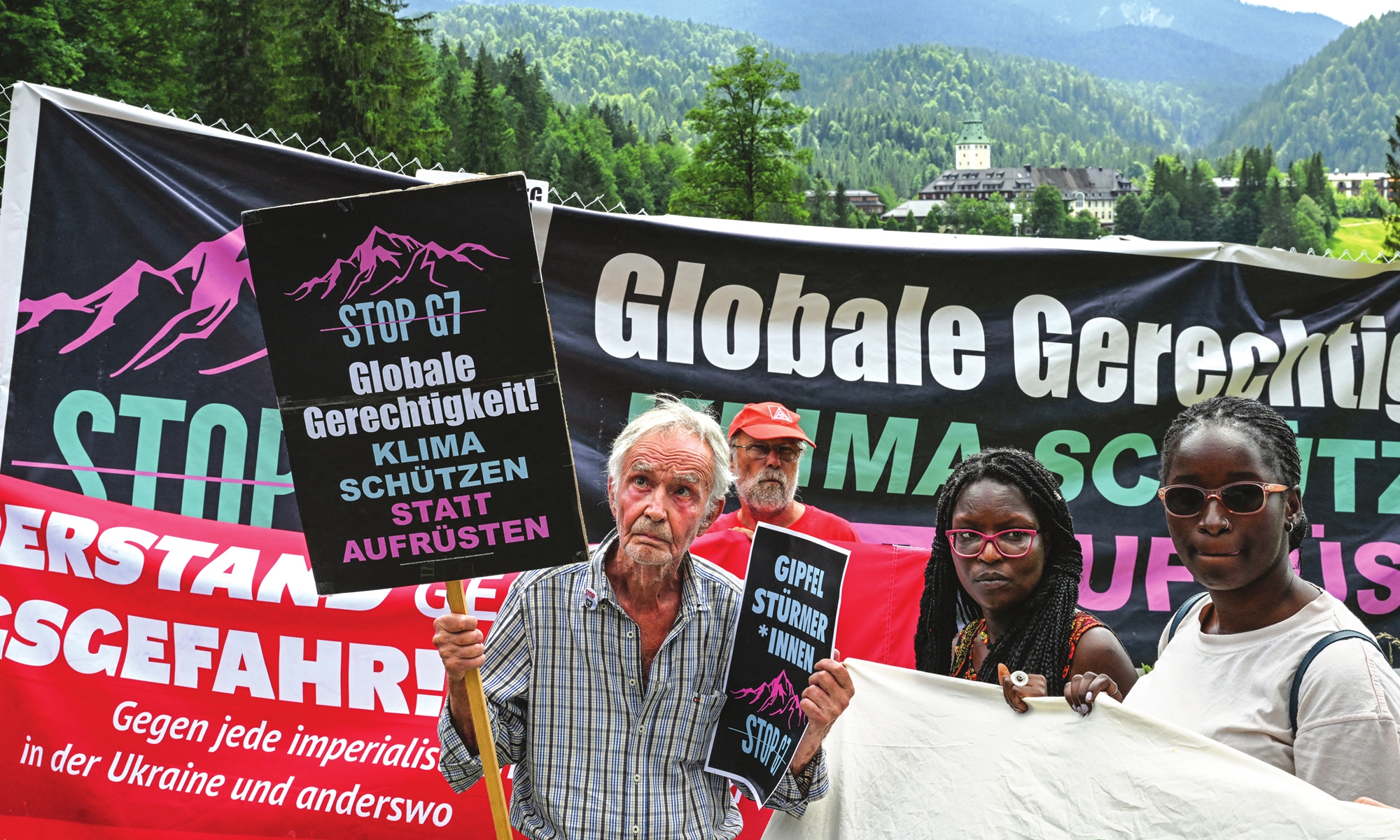
After US president Joe Biden and leaders from other Group of Seven (G7) nations proposed to raise $600 billion in the next five years to finance infrastructure projects in developing countries, a move generally interpreted by observers as intending to counter China's Belt and Road Initiative (BRI), economists expressed skepticism over the feasibility of such a program, citing reasons such as the US' strained government debt status, poor infrastructure construction abilities and past failure with a similar project. They also criticized the G7 proposal for having an "insincere" intention, as it was raised more from the perspective of launching a political competition with China, instead of really caring about the infrastructure situations in lower income countries. In this sense, it is unlikely to yield any project that could compare with China's flagship BRI projects, which focus on mutual connectivity, win-win, not decoupling and exclusionism. Government leaders from Group of Seven nations made a pledge on Sunday at their annual gathering to raise $600 billion in private and public funds over the next five years to finance infrastructure in developing countries, in a project called the Partnership for Global Infrastructure and Investment (PGII), a Reuters report noted on Monday. US president Joe Biden said that the US aims to mobilize $200 billion for the PGII project over the period through grants, federal funds and private investment to support projects that help tackle climate change, improve global health, digital infrastructure and gender equity. He highlighted several flagship projects, including a $2 billion solar development project in Angola, the report noted. Europe will mobilize 300 billion euros for the initiative, Reuters said. On the sidelines of the G7 Leaders' Summit in Germany, Biden said that the PGII is not aid or charity, but will "deliver returns for everyone", including the American people, according to a report by npr.org on Sunday. The G7 nations launched the PGII project only about one year after a very similar scheme was unveiled at the G7 conference last July. The scheme, named Build Back Better World, commonly known as B3W, is considered by many media outlets as a predecessor to the PGII. UK newspaper The Guardian, for example, used the word "relaunch" to imply that PGII is just a disguised version of B3W. Insincere intention Although the US government didn't explicitly mention the relationship between PGII and the China-proposed BRI program, many media outlets including Reuters as well as economists mentioned that the real intention of PGII is to counter China's BRI which has delivered many concrete projects since it was proposed in 2013. Hu Qimu, chief research fellow at the Beijing-based Sinosteel Economic Research Institute, said that China's global infrastructure cooperation has continued to yield results in recent years, standing in sharp contrast to some Western governments' "dereliction of duty" in this area. "The PGII is like a shouted slogan to ring-fence China's strategies, a kind of tactic to create an atmosphere of cracking down on China," Hu said, adding that it could also be a method used by Biden to pander to voters ahead of the US mid-term elections. Another international relations expert who requested anonymity also said that the US, which has no tradition of helping other countries in the field of infrastructure, would not suddenly change and take to the idea. "The real intent is to counter China's projects and compete with China," the person said. Observers found that the PGII's two pillars of clean energy and information/communications technology are particularly hostile to China, as the West has been smearing China over issues related to the solar power industry in Xinjiang and China's 5G technology, using security concerns as an excuse. Commenting on this policy direction, experts criticized the US-led program for lacking the sincerity of really caring about the infrastructure situations in developing countries, saying instead that it had a very "impure" objective. "If the G7 group only targets China's overseas infrastructure market for competition, history will prove that this kind of top-level planning that lacks the concept of common development will only become another short-lived project," Wang Jianjiao, director of the economic and trade cooperation department under the Silk Road Academy of Social Sciences, told the Global Times on Monday. Wang also noted that only when the US gives up its global cooperation model, which often attaches "unequal additional conditions", gets rid of its own debt predicament and reinvigorates the US' real economy will it have a chance of competing with China in overseas infrastructure markets. Unfeasible project Economists also noted that the PGII and its promised funding volume by the US government is never likely to become reality, considering the US' internal economic problems and unstable political situation. Qiu Wenxu, director of the industry development department under the Silk Road Academy of Social Sciences, said that if the US government really intends to materialize the $200 billion funding, it is unlikely to come mostly from private capital, as infrastructure projects have long investment cycles and relatively low yield rates, making them unattractive to private investors. "However, at the current time when the US' government debt is at a critically high level and it has hardly any budget to invest in foreign-bound infrastructure, Biden still needs to raise most of the money from private companies. In this sense, it's very likely that the $200 billion fund can't be raised to the full number," Qiu told the Global Times on Monday. He further stressed that the US does not have advantages in infrastructure construction, pointing out that it has hardly completed any large infrastructure projects in its own country in the past 10 years, not to mention abroad. For example, California's high-speed rail, a flagship US infrastructure project, is "tens of billions of dollars over budget and years behind schedule," according to a report by kqed.org in May. Some experts also noted that the US' changing political situation is also casting uncertainties over implementation of the funding. "It would be even more difficult to convince the US Congress to invest overseas, if after the midterm elections the Democrats lose the majority of House of Representatives," Lü Xiang, an expert on US studies and research fellow at the Chinese Academy of Social Sciences, told the Global Times, on Monday. In fact, analysts have pointed out that the PGII funding would in fact add liability to Biden's already poor approval rating in the US, given the much weakened domestic economy due to galloping inflation, among other social issues. The difficulties in raising funds for such a project were already shown in the PGII's predecessor project B3W, which some media outlets and people regarded as a failure. An article by Foreign Affairs, for example, said that the B3W project has " languished", while a Guardian report noted that "little had been heard of" B3W since its launch. According to the Foreign Affairs article, the US' commitments to global infrastructure renewal only came to about $6 million under the B3W project in one year after its launch, which is "a far cry" from the billions Biden promised at the beginning. "Judging from the B3W implementation, it has high probability that the PGII will be another empty promise," Qiu said. BRI success to continue Economists also said that even with competition and certain countries' attempts to smear the BRI, the benefits and achievements of BRI is obvious to all, and that BRI investment will likely continue to surge in the future regardless of the volatile global political situation. Chinese Foreign Ministry Spokesperson Zhao Lijian said on Monday that China welcomes any initiative to promote global construction of infrastructure. "We believe that one initiative is not meant to replace another. However, we oppose the act of using the name of infrastructure to promote geopolitical schemes," he said. Liang Haiming, dean of the Belt and Road Institute at Hainan University, also told the Global Times that even if Western countries loan money to developing countries to build infrastructure projects, China might benefit from such a program, as many countries would purchase China's construction materials as they are known for being cost effective. Qiu also said that China's BRI has become one of the largest international cooperation platforms in past years, as the country does not view infrastructure construction projects as the ultimate purpose, but aims to help countries consolidate economic development foundations by improving their infrastructure construction.
In the first five months, China's non-financial foreign direct investment in countries along the BRI route rose 10.2 percent to about $8.2 billion, data from the Ministry of Commerce showed.
RELATED ARTICLES
Related posts:
US loses focus by inserting anti-China in infrastructure plan
Belt-road changes world order
Prospering with Belt and Road to reap the benefits of China's initiative
Asian Infrastructure Investment Bank, opens to lay down milestone for global economic governance
Connected by mountains and waters
NATO’s expansion stumbles as members calculate costs
U.S.-backed smear campaign created 'debt trap' narrative to defame BRI

